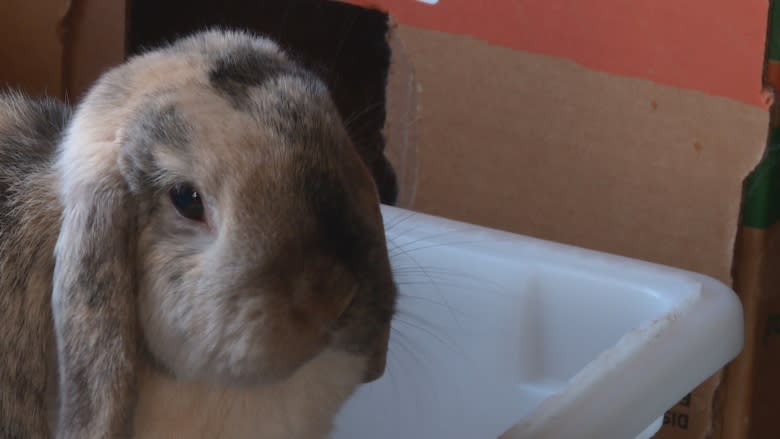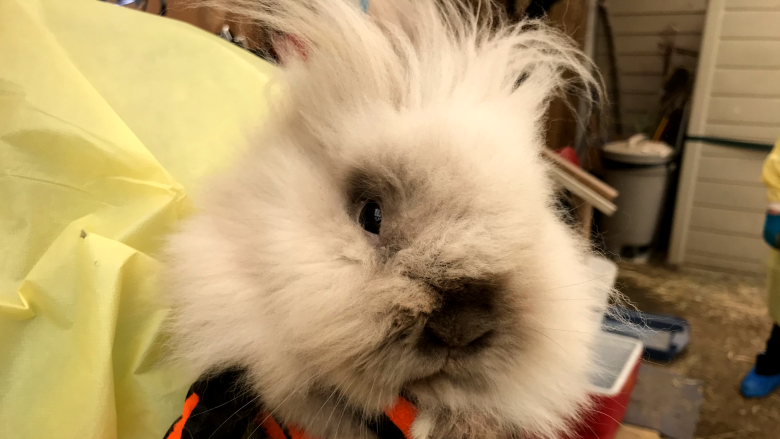Richmond rabbit shelter at max capacity as problem bunnies run amok
A Richmond rabbit shelter that's trying to contain the city's swelling feral rabbit problem says its kennels are full.
For years, feral bunnies have been munching on lawns, gardens, and farms in Richmond — much to the chagrin of local businesses and residents.
According to the city, the bulk of the rabbits are descendants from rabbits that were released into the wild by owners or got loose from farms or homes — and have multiplied rapidly.
"They're everywhere," said Deanna Hamm, the shelter supervisor at Rabbitats Rescue. "They're in little neighbourhoods where we may not even be aware of them. I think we can safely say there's over 1,000 of them loose in Richmond."
Rabbitats Rescue has been working to get a hold of the issue in neighbourhoods around the Richmond Auto Mall by providing temporary shelters and finding them new homes.
However, they have been forced to downsize from their previous shelter — a space inside a vacant development complex on the auto mall grounds — which is now being utilized by its developer.
Now, they operate within two small trailers, filled with wall to wall rabbits.
Community forum
On Wednesday, the group hosted a public forum to get a sense of the frustrations of local residents.
According to Rabbitats, this spring has seen an explosion of baby bunnies in addition to the established population in Richmond.
"We need space," said Hamm. "If we're going to be bringing in any more rabbits under any more circumstances, we need more space."
Concerns have also been raised for the well-being of the rabbits. The bulk of them aren't suited for the wild, and many often turn up dead at the side of the road.
"They're more at risk of being eaten by predators than are Indigenous wild rabbits — and then they get hit by cars. It's tragic," said Hamm.
City partnership?
The group is hoping for a partnership with the city, and is pushing for the implementation of a spray/neuter bylaw to be put in place, similar to what currently exists for cats.
They're also on the hunt for a new temporary shelter space through the summer, one that could potentially shelter the rabbits from the deadly rabbit hemorrhagic disease virus — a calicivirus that causes fever, convulsions and kills a rabbit within 36 hours.
According to Richmond city staff, the city doesn't have the resources to fund groups like Rabbitats in terms of trapping rabbits and establishing sanctuaries.
In an emailed statement, the city says it has the authority to trap, hold and euthanize rabbits. However, the current plan is to educate the public not to release rabbits into the wild, which is against local bylaws.
The city banned the sale of rabbits in pet stores in 2010.




